If you own an RV, then you know how convenient and comfortable they can be. You can bring your home with you as you travel across the country or camp off-grid.
In this article, we’ll go through everything you need to know about emptying your RV tanks. This will keep both you and your vehicle healthy and happy—no matter where the open road takes you! Keep reading for more info!
Table of Contents
Where To Dump Your RV Holding Tanks?
The first thing you need to know is where you are allowed to empty your RV holding tanks. Most campgrounds, RV parks, and gas stations have a designated area for this. You will need an inexpensive sewer hose adapter to connect your rig’s black-water tank to the nearby drainage system.
It’s also important to note that you may not be allowed to dump your tanks in public areas. Always check with the local laws and regulations of any area before doing so! If a designated dumping station isn’t available, it might be time to find a new place to stay.
Legal Restrictions and Regulations on Open Dumping
You need to know the rules before you go to a new place. Some places do not allow people to dump their RV tanks into public sewers.
Other places may require special permits or fees before you can do this. Be sure to check with local authorities before you go, so you don’t get in trouble! [1]
Where Can I Dump?
If you’re looking for places to empty your tanks, there are a few common spots. Campgrounds and RV parks usually have designated spots or special services that allow you to dump your tanks. Gas stations may also have dumping facilities, so be sure to ask when you pull in.
You can also look online for official dumping locations. Many states and cities have websites where you can search for available dumping spots. It’s also a good idea to ask other RVers for advice or tips about the best spots.
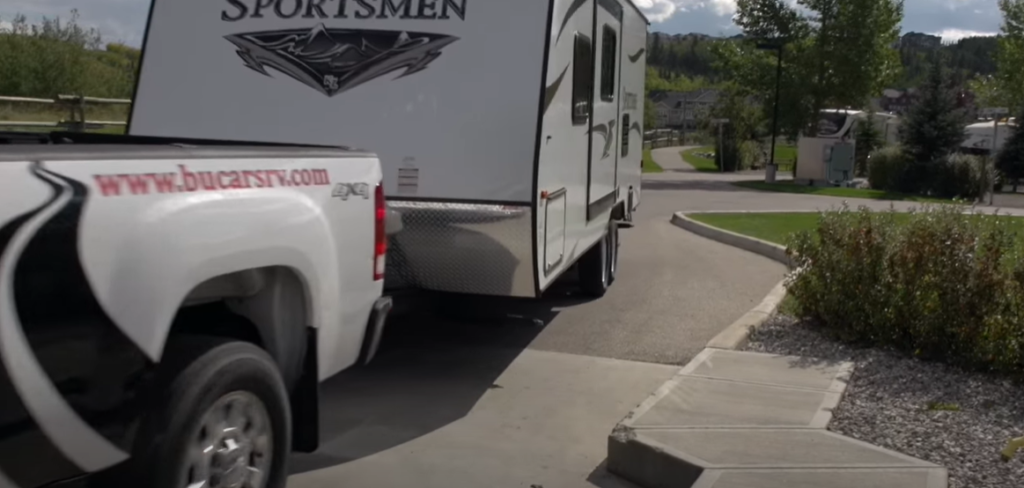
RV Parks and Campgrounds
If you’re staying at an RV park or a campground, they will have designated spots where you can empty your tanks. Check with them before you go so that you know what the rules are and how much (if anything) it costs to use their facilities.
While this service is convenient, it can be expensive—so be sure to ask about costs before you use it!
National Park Dump Stations
Many national parks have designated dump stations. These are usually free and open to all visitors, but you may need to check with a park ranger before you go.
You’ll also need an adapter to connect your sewer hose to the dump station’s plumbing system.
Dumping at Home
If you are lucky enough to have an RV at home, then you can usually dump your tanks in the comfort of your own driveway.
Just remember that it is still important to follow all local laws and regulations when dumping! It is also a good idea to invest in some sewer odour neutralizers before emptying your tanks.
Online Resources
If you need help finding a designated place to dump your tanks, there are some great online resources available. AnyRVer is a great website that offers up-to-date information about RV parks, campgrounds, and dump stations.
The site also allows users to add reviews of different spots so that other RVers can get an idea of what to expect.
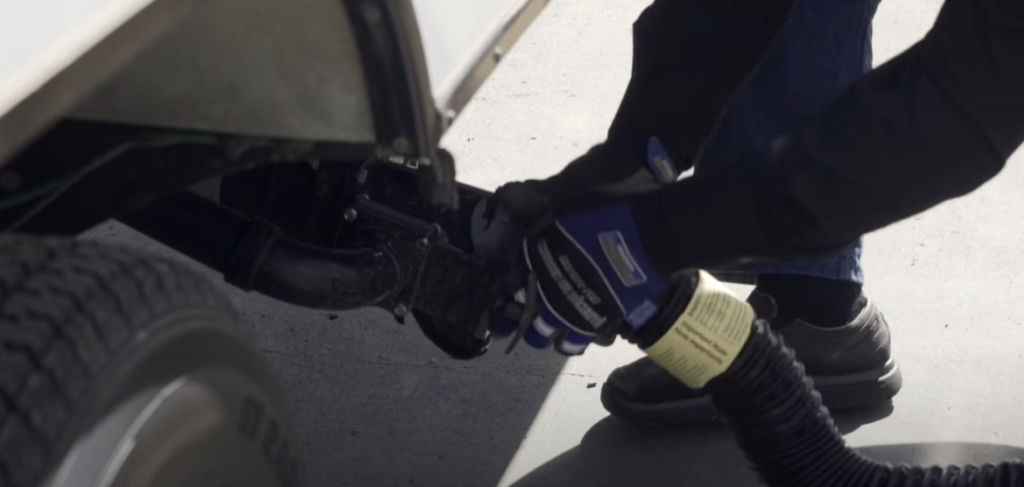
What is RV Black Water?
RV black water is the wastewater from your RV toilet. This wastewater should never be dumped in public sewers or on the ground, as it contains bacteria and other contaminants that can be harmful to people and the environment. Always dispose of your black water properly through a designated dump station!
Places to Dump Your RV Black Water
Campgrounds and RV Parks
Campgrounds and RV parks are a great option for dumping your RV black water. Many places will have designated spots where you can connect your sewer hose, or they may offer special services that will dispose of the waste for you. Be sure to ask about costs before using any services, as these can be expensive.
Gas Stations
Many gas stations have special dumping facilities for RVers. Be sure to ask when you pull in if they offer this service, as it can be a great way to get rid of your wastewater quickly and conveniently.
Rest Stops / Rest Areas
Some rest stops or rest areas have designated spots for dumping RV black water. Be sure to check with the local authorities before you go, as these places may require special permits or fees before they can be used.
RV Dealerships
RV dealerships often have special services that allow you to dispose of your wastewater. Again, be sure to ask about costs before using any services, as these can be expensive. [2]
An Approved Municipal Sewer System or Septic Tank
In some areas, it is permissible to dispose of your RV black water in a municipal sewer system or septic tank.
How To Find Legal RV Black Water Dumping Stations?
If you’re looking for a legal spot to dump your RV black water, the best place to start is by checking with local businesses and organisations that cater to RVers.
There are also plenty of online resources available such as AnyRVer, which offers up-to-date information about RV parks, campgrounds and dump stations.
Tips for Dumping RV Tanks
If you’re new to RVing, here are some tips that will make the process of emptying your tanks easier:
- Always check local laws and regulations before dumping.
- Don’t dump in public areas, as this can be harmful to people and the environment.
- Invest in some odour neutralizers before emptying your tanks.
- Make sure you have an adapter to hook up your sewer hose.
- Have a designated spot ready before you start the dumping process.
- Put something down on the ground first, such as a tarp or plywood, to protect the surface.
- Wear gloves and wash your hands thoroughly afterwards.
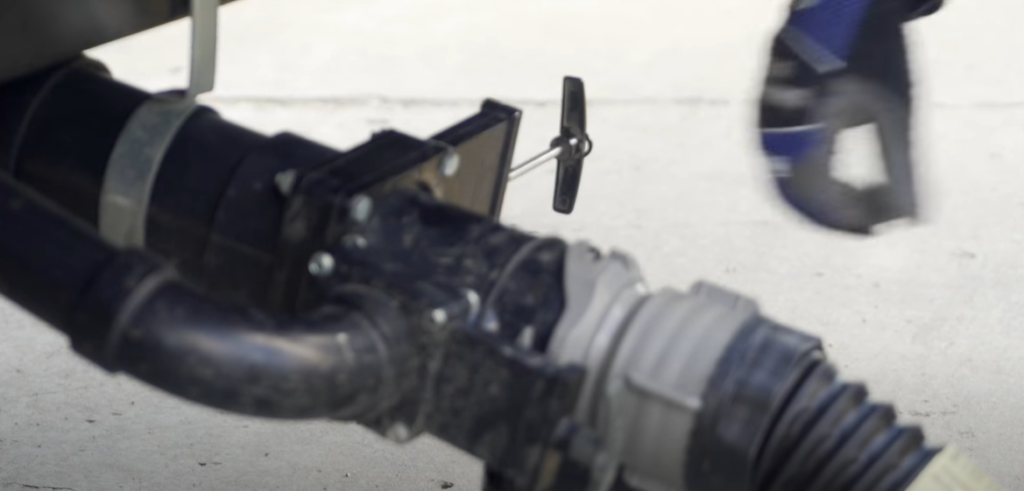
FAQ
How do I empty my RV tank without a dump station?
If you don’t have access to a dump station, you can empty your RV tanks by connecting them directly to an approved municipal sewer system or septic tank.
Be sure to check the local regulations before doing this, as there may be restrictions on what types of wastewater can be disposed of in this manner.
Do I need a special hose for dumping my RV tank?
Yes, you will need a special RV sewer hose to connect your tanks to an approved dump station. These hoses are typically about 20 feet in length and come with connections that can fit most standard RV ports.
How do you empty a camper waste tank?
Emptying a camper waste tank is similar to emptying an RV tank. You can connect your sewer hose to an approved dump station and allow the wastewater to be disposed of properly.
How often do you need to empty RV tanks?
The frequency of emptying RV tanks will depend on your individual usage, as well as the type of tank that you have. Many RV owners recommend that grey water tanks should be emptied every few days, while black water tanks can usually last for a week or more.
Can you empty a camping toilet into a normal toilet?
No, camping toilets should never be emptied into a normal toilet. This can cause clogs and other plumbing problems. Instead, RV owners should empty their camping toilets at an approved dump station or into an approved municipal sewer system or septic tank.
What are the best RV tank treatments?
There are different types of RV tank treatments, and the best one for you will depend on what you need. For general maintenance, it is usually recommended to use a combination of bacteria and enzyme-based products.
These products help to break down waste and keep tanks clean and without bad smells. It is also important to use specialised wastewater additives that contain chlorine dioxide or other chlorine-based products. This will help reduce the growth of harmful bacteria.
What is a good way to keep your RV tanks from freezing?
The best way to keep your RV tanks from freezing is to make sure that they are well insulated. Adding layers of insulation around the tank walls, as well as putting blankets over the holding tanks when not in use, can help to keep the tanks warm.
Additionally, you can add a tank heater or antifreeze to your RV tanks to prevent them from freezing. It is also important to empty your RV tanks regularly so that there is less water in the holding tanks.
What are the safety precautions when emptying RV tanks?
When emptying RV tanks, it is important to take all necessary safety precautions. Make sure that you are using an approved sewer hose and connecting properly to the dump station.
Wear protective gloves and masks while handling waste water, as well as avoid contact with eyes and skin. Additionally, always be aware of your surroundings and be sure to clean up any spills immediately.
How do you maintain and clean an RV tank?
It is important to keep your RV tank clean so it will last longer. Regularly emptying the tanks will help reduce any buildup of waste and keep them smelling fresh.
Additionally, it is important to use a specialised wastewater additive that contains chlorine dioxide or other chlorine-based products to reduce the growth of harmful bacteria.
Finally, it is recommended to use a combination of bacteria and enzyme-based products to break down waste and keep tanks clean.
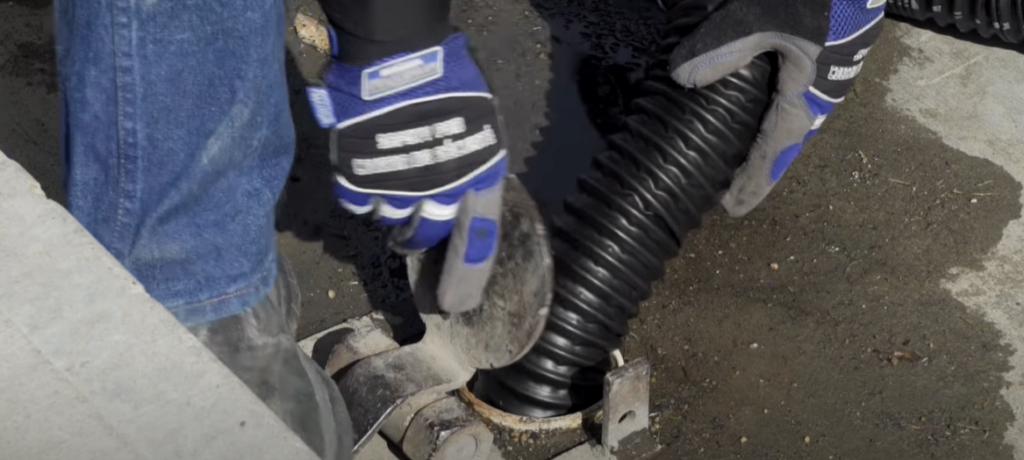
How do you properly dispose of RV wastewater?
It is important to properly get rid of RV wastewater so we can protect the environment and people’s health. Check with your local authorities before getting rid of any waste water, because sometimes there are rules about what types of wastewater can be disposed of in this manner.
In general, it is recommended to empty grey water tanks at an approved dump station or into an approved municipal sewer system. Black water tanks should never be emptied into a regular toilet. Instead, they should also be disposed of at an approved dump station or into an approved municipal sewer system or septic tank.
Why should RV owners empty their tanks before leaving a campsite?
It is important for RV owners to empty their tanks before leaving the campsite in order to protect the environment and other campers. Empty tanks help reduce bad smells and potential contamination of local water sources.
Additionally, tank emptying helps to prevent any problems with your RV’s plumbing system, as a full tank can put too much pressure on the pipes.
Finally, it is also important to empty your tanks in order to comply with local regulations and avoid any potential fines or other penalties.
Does emptying my RV tank save money?
Yes, emptying your RV tank can help you save money. When you empty your tanks regularly, it helps reduce the amount of waste buildup in them and can help prevent clogs or damage to plumbing.
Additionally, if you use a wastewater additive with chlorine dioxide or other chlorine-based products, this can help reduce the amount of waste in the tanks and help prevent any expensive repairs.
Finally, emptying your tanks before you leave a campsite can help you save money on potential fines for not complying with local regulations.
Do I need to empty my RV tanks every time I move?
It is not necessary to empty your RV tank every time you move, as long as the dump station at your previous location is approved and has been used correctly.
However, it is important to periodically check your tanks for any buildup of waste or clogs in the plumbing that can occur with long stays in one place.
Additionally, it is important to empty your tanks before long travels across state lines as local regulations may require you to do so.
Does it matter where I empty the RV tanks?
It is important to make sure you are emptying your RV tanks in approved dump stations or municipal sewer systems. Some dump stations may not be suitable for grey water, so always double-check before disposing of any waste water.
Additionally, black water should never be emptied into a regular toilet. Finally, it is important to be aware of any local regulations regarding tank emptying and make sure you are in compliance.
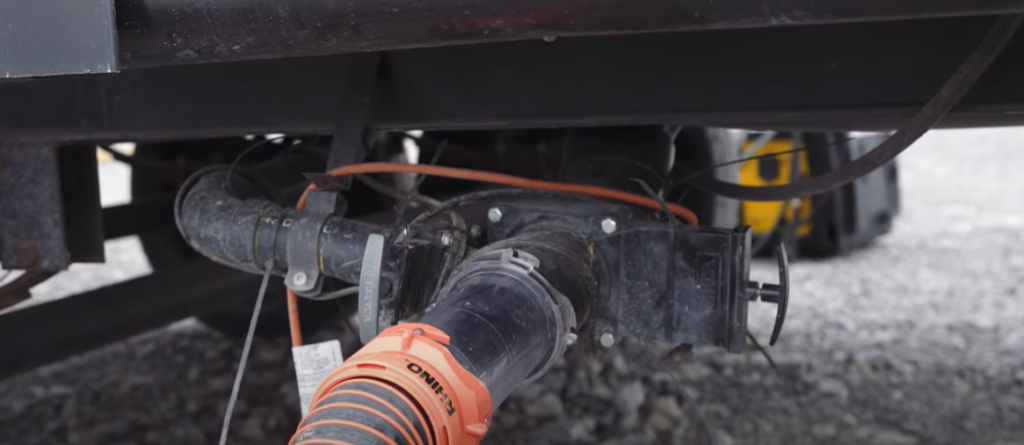
Do I need to buy special products for emptying RV tanks?
It is recommended that you use specialised wastewater additives when emptying your RV tanks. These products contain chlorine dioxide or other chlorine-based ingredients which reduce the growth of harmful bacteria and help keep the tank clean.
Additionally, it is also important to use a combination of bacteria and enzyme-based products in order to break down waste and keep the tanks clean.
Does the temperature affect how I empty my RV tanks?
The temperature can affect emptying your RV tanks. In colder climates, use a blend of bacteria and enzyme-based products that are designed for cold weather. These products will help keep waste from freezing and sticking to the tank walls.
Additionally, in colder climates, you may need to use a specialised tank heater to ensure the wastewater can be safely emptied from your RV.
Are there any other tips for emptying RV tanks?
Yes, there are several other tips for emptying RV tanks. It is important to never leave your black water valve open, as this can allow odors and bacteria to escape from the tank.
Additionally, it can help to fill your tanks with water before disposing of them, as this will help reduce odors and any potential blockages in the plumbing.
Finally, make sure you are wearing protective gear such as gloves and face masks when emptying your tanks to avoid contact with hazardous materials.
Do I need to empty my RV tanks every time I move?
It is not necessary to empty your RV tank every time you move, as long as the dump station at your previous location is approved and has been used correctly. However, it is important to periodically check your tanks for any buildup of waste or clogs in the plumbing that can occur with long stays in one place.
Additionally, it is important to empty your tanks before long travels across state lines as local regulations may require you to do so.
Can I empty my RV tanks at home?
Yes, as long as you have a good drainage system, you can empty your RV tanks at home. This is a good idea for people who live in places with cold weather. They need to use special tank heaters to keep the wastewater from freezing.
Also, if you are using a special additive with your RV tanks, always check the label. You need to make sure it will not harm your septic system.
Can I use a portable sanitation tank to empty my RV tanks?
Yes, you can use a portable sanitation tank to empty your RV tanks. This is especially useful for people who do not have access to approved dump stations.
However, it is important that you properly maintain and clean the tank after each use in order to ensure it is safe and effective.
Can I use a regular sewer system to empty my RV tanks?
Yes, you can use a regular sewer system to empty your RV tanks. However, it is important to make sure the pipes are compatible with your tank setup.
Additionally, it is important to be aware of any local regulations regarding emptying wastewater into sewers and make sure you are in compliance.
Useful Video: Dumping your RV’s Black and Grey RV Water Tanks
Conclusion
As you can see, there are plenty of places that you can take your RV when you need to empty the tanks. It’s important to stay informed on local regulations and remember to be respectful of any crowds you encounter as well. With a few tips and reminders, this necessary process can be surprisingly stress-free!
What’s more, if done correctly, emptying your RV tanks is easily achievable with minimal effort required. So what are you waiting for? Go out there and find the best spot for emptying your RV tanks today! Remember: stay safe and keep it clean!
References:
- https://uniquecampingmarine.com/blogs/dumping-rv-holding-tanks-series/where-to-dump
- https://www.thervgeeks.com/5-places-to-dump-your-rv-black-water/

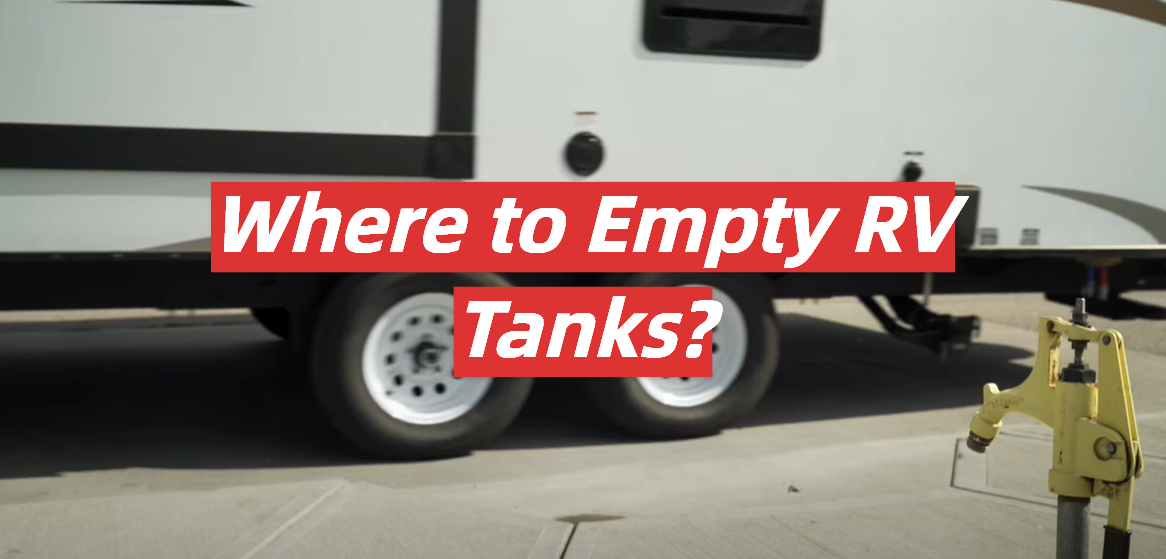



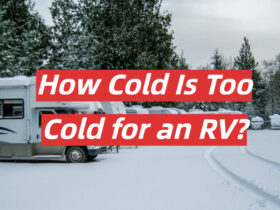
Leave a Reply